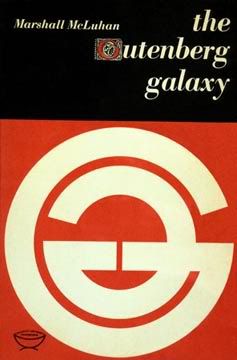Jacques Derrida, Bernard Stiegler: Echographies of Television: Filmed Interviews (1996/2002)
Filed under book | Tags: · literature, mass media, media studies, philosophy, photography, recording, sociology, technology, teletechnologies, television

“In this book, Jacques Derrida talks with Bernard Stiegler about the effect of teletechnologies on our philosophical and political moment. Improvising before a camera, the two philosophers are confronted by the very technologies they discuss and so are forced to address all the more directly the urgent questions that they raise. What does it mean to speak of the present in a situation of “live” recording? How can we respond, responsibly, to a question when we know that the so-called “natural” conditions of expression, discussion, reflection, and deliberation have been breached?
As Derrida and Stiegler discuss the role of teletechnologies in modern society, the political implications of Derrida’s thought become apparent. Drawing on recent events in Europe, Derrida and Stiegler explore the impact of television and the internet on our understanding of the state, its borders and citizenship. Their discussion examines the relationship between the juridical and the technical, and it shows how new technologies for manipulating and transmitting images have influenced our notions of democracy, history and the body. The book opens with a shorter interview with Derrida on the news media, and closes with a provocative essay by Stiegler on the epistemology of digital photography.”
First published as Echographies de la télévision – Entretiens filmés, Galilée, Paris, 1996.
Translated by Jennifer Bajorek
Publisher Polity Press, 2002
ISBN 0745620361, 9780745620367
174 pages
PDF (no OCR; updated on 2012-7-19)
Comment (0)Christian Fuchs: Internet and Society. Social Theory in the Information Age (2007)
Filed under book | Tags: · collaboration, facebook, gift economy, information technology, internet, mass media, myspace, neoliberalism, politics, technology, virtual communities, youtube

In this study, Christian Fuchs discusses how the internet has transformed the lives of human beings and social relationships in contemporary society. By outlining a social theory of the internet and the information society, he demonstrates how the ecological, economic, political, and cultural systems of contemporary society have been transformed by new ICTs. Fuchs highlights how new forms of cooperation and competition are advanced and supported by the internet in subsystems of society and also discusses opportunities and risks of the information society.
Publisher Routledge, 2007
ISBN 0415961327, 9780415961325
398 pages
Marshall McLuhan: The Gutenberg Galaxy: The Making of Typographic Man (1962–) [EN, BR-PT, CZ]
Filed under book | Tags: · global village, literacy, mass media, movable type, print, renaissance, scholasticism, technology, typography, writing

“In this book, McLuhan analyzes the effects of mass media, especially the printing press, on European culture and human consciousness. It popularized the term global village, which refers to the idea that mass communication allows a village-like mindset to apply to the entire world; and Gutenberg Galaxy, which we may regard today to refer to the accumulated body of recorded works of human art and knowledge, especially books.
McLuhan studies the emergence of what he calls Gutenberg Man, the subject produced by the change of consciousness wrought by the advent of the printed book. Apropos of his axiom, “The medium is the message,” McLuhan argues that technologies are not simply inventions which people employ but are the means by which people are re-invented. The invention of movable type was the decisive moment in the change from a culture in which all the senses partook of a common interplay to a tyranny of the visual. He also argued that the development of the printing press led to the creation of nationalism, dualism, domination of rationalism, automatisation of scientific research, uniformation and standardisation of culture and alienation of individuals.”
Publisher University of Toronto Press, 1962
ISBN 0802060412, 9780802060419
300 pages
The Gutenberg Galaxy (English, updated on 2021-1-6)
A galáxia de Gutenberg (BR-Portuguese, trans. Leônidas Gontigo de Carvalho and Anísio Teixeira, 1972, added on 2017-3-12)
Gutenbergova galaxie (Czech, 2000, added on 2017-3-12)

